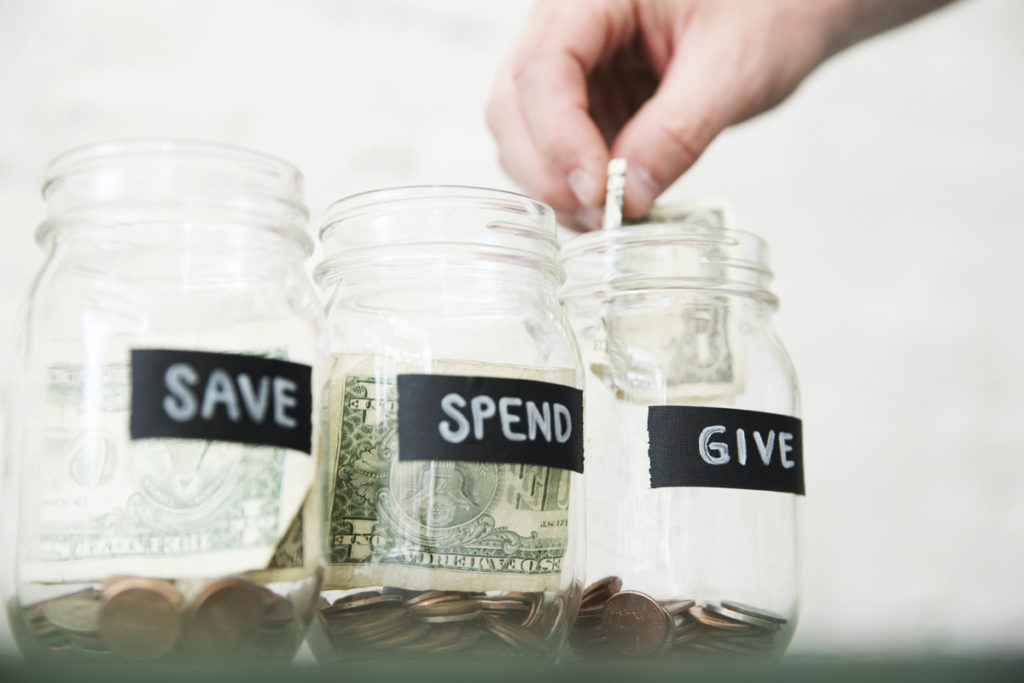Turn on the TV or open a paper and the financial news can be unsettling. “A recession is coming!” says one expert. “No recession,” argues another. “Save more, spend less, just in case!” cautions a third. And with all the conflicting reports, our joy level sinks lower and lower. But does financial security equal personal joy? Does our economic status serve as an accurate barometer of our happiness level?
In a classic study psychologists determined that recent winners of the Illinois State Lottery were no happier than recent accident victims who were consequently disabled. The two groups were asked to “rate the amount of pleasure they got from everyday activities: small but enjoyable things like chatting with a friend, watching TV, eating breakfast, laughing at a joke, or receiving a compliment. When the researchers analyzed their results, they found that the recent accident victims reported gaining more happiness from these everyday pleasures than the lottery winners.”[i]
Even the thrill of winning the lottery wears off.
More money makes truly poor people happier insofar as it relieves pressure from everyday life—getting enough to eat, having a place to live, affording medical care. But once people reach the middle-class income level, even big financial gains don’t yield much, if any, increase in happiness.[ii] Americans who earn more than $10 million annually report a happiness level only slightly higher than the blue-collar workers they employ.[iii] As one Harvard professor said, “We think money will bring lots of happiness for a long time, and actually it brings a little happiness for a short time.”[iv]
We’ve all seen happy peasants and miserable millionaires, right?
There is another option. It requires no credit card, monthly mortgage, or stroke of fortune. It demands no airline tickets or hotel reservations. It stipulates no PhD, MD, or blue-blood pedigree. Age, ethnicity, and gender are not factors. Balmy climates, blue skies, and Botox are not mandated. No resources for psychoanalysis, plastic surgery, or hormone therapy? No problem. You don’t have to change jobs, change cities, change looks, or change neighborhoods.
But you might need to change doors.
The motto on the front door says “Happiness happens when you get.” The sign on the lesser-used back door counters “Happiness happens when you give.”
Doing good does good for the doer.
Research bears this out.
When volunteers were put in a functional MRI scanner and were told they would be giving some of their money to charity, the areas of their brains associated with pleasure—like food and sex—lit up like Christmas trees. Giving to help others triggers dopamine.[v] (New fund-raising slogan perhaps?)
In another study a team of social psychologists distilled happiness factors into eight common denominators. Two of the first three involve helping others. Happy, contented people “devote a great amount of time to their family and friends, nurturing and enjoying those relationships.” And “they are often the first to offer a helping hand to co-workers and passers-by.”[vi]
Seeking joy? Do good for someone else. A tender example of this truth came my way just today. I met with a husband and daughter to plan the funeral of the wife and mother. Patty was the picture of unselfishness. We tried to imagine how many kids she had hugged, diapers she had changed, children she had taught, and hearts she had encouraged. To see her smile was to see springtime thaw the winter ice.
Three months ago a brain condition had left her unable to speak, partially paralyzed, and living in a rehabilitation center. Her spirits sank so low she did not want to eat and had trouble sleeping. One evening her daughter had an idea. She placed her mother in a wheelchair and rolled her from room to room, looking for people who needed encouragement. It didn’t take long.
Though unable to speak, Patty could touch and pray. So she did both. She patted other patients and then placed her hand on their hearts and bowed her head. For the better part of the evening, she touched and prayed her way through the rehab center. That night her appetite returned, and she slept peacefully.
The words of Jesus are spot-on: “It is more blessed to give than to receive” (Acts 22:35). Because when you do, it has a boomerang effect. Happiness happens when we give it away. This is such great news. You can’t control your genetics. You aren’t in charge of the weather, the traffic, or the occupant of the White House. But you can always increase the number of smiles on our planet. You can lower the anger level in your city. You—yes, you—can help people to sleep better, laugh more, hum instead of grumble, walk instead of stumble. You can lighten the load and brighten the day of other human beings. And don’t be surprised when you begin to sense a newfound joy yourself.
©Max Lucado, September 2019
[i]Melissa Dahl, “A Classic Psychology Study on Why Winning the Lottery Won’t Make You Happier,” The Cut, January 13, 2016, https://www.thecut.com/2016/01/classic-study-on-happiness-and-the-lottery.html.
[ii]Daniel Kahneman and Angus Deaton, “High Income Improves Evaluation of Life but Not Emotional Well-Being,” PNAS, August 4, 2010,p. 3, http://www.pnas.org/content/early/2010/08/27/1011492107.
[iii]Ed Diener, Jeff Horwitz, and Robert A. Emmons, “Happiness of the Very Wealthy,” Social Indicators Research 16, 263–74, https://emmons.faculty.ucdavis.edu/wp-content/uploads/sites/90/2015/08/1985_1happiness-wealthy.pdf.
[iv]Carey Goldberg, quoting Daniel Gilbert, “Too Much of a Good Thing,” Boston Globe, February 6, 2006, http://archive.boston.com/yourlife/health/mental/articles/2006/02/06/too_much_of_a_good_thing/.
[v]Berkeley Wellness, “What Is the Science of Happiness?” November 9, 2015, http://www.berkeleywellness.com/healthy-mind/mind-body/article/what-science-happiness.
[vi]Lyubomirsky, The How of Happiness, 23.

